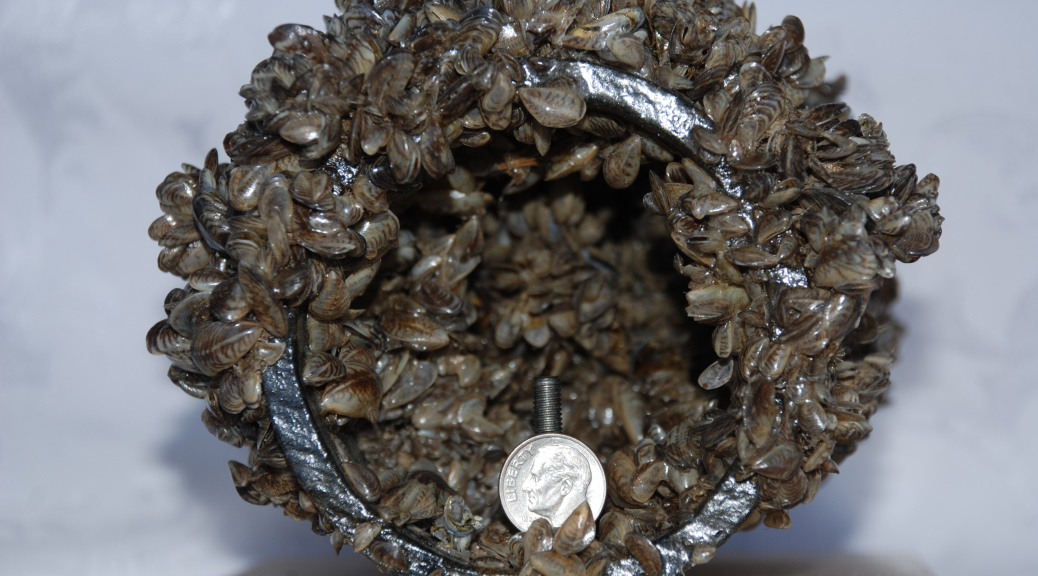
Report Date:
http://www.dfg.ca.gov/
California agencies combatting the spread of invasive quagga and zebra mussels remind boaters to remain cautious over Labor Day weekend.
Quagga and zebra mussels are invasive freshwater mussels native to Eurasia. They multiply quickly, encrust watercraft and infrastructure, alter water quality and the aquatic food web and ultimately impact native and sport fish communities. These mussels spread from one body of water to another by attaching to watercraft, equipment and nearly anything that has been in an infested waterbody.
Microscopic juveniles, invisible to the naked eye, are spread from infested waterbodies in water entrapped in boat engines, bilges, live-wells and buckets. Quagga mussels have infested 33 waterways in Southern California and zebra mussels have infested two waterways in San Benito County.
To prevent the spread of these mussels and other aquatic invasive species, people launching vessels at any body of water are subject to watercraft inspections and are strongly encouraged to clean, drain and dry their motorized and non-motorized boats, including personal watercraft, and any equipment that contacts the water before and after recreating.
“It has been a great year to enjoy our lakes and rivers, and boaters are instrumental in protecting California’s waters,” said California Department of Fish and Wildlife (CDFW) Habitat Conservation Planning Branch Chief Rick Macedo. “As the season winds down, boaters should continue to Clean, Drain, and Dry their watercraft after every outing to protect these cherished destinations for the future.”
Take the following steps both before traveling to and before leaving a waterbody to prevent spreading invasive mussels, improve your inspection experience and safeguard California waterways:
CDFW has developed a brief video demonstrating the ease of implementing the clean, drain and dry prevention method, which can be viewed at youtube.com/watch?v=GaeAIPLoK-k. In addition, a detailed guide to cleaning vessels of invasive mussels is available on the CDFW’s webpage at dfg.ca.gov/FileHandler.ashx?DocumentID=4957&inline. Additional information is available on the Division of Boating and Waterways (DBW) website at dbw.parks.ca.gov/?page_id=28996.
Travelers are also advised to be prepared for inspections at California Department of Food and Agriculture (CDFA) Border Protection Stations. Over the past nine years, more than 1 million watercraft entering California have been inspected at the Border Protection Stations. Inspections, which can also be conducted by CDFW and California State Parks, include a check of boats and personal watercraft, as well as trailers and all onboard items. Contaminated vessels and equipment are subject to decontamination, rejection, quarantine or impoundment.
Quagga and zebra mussels can attach to and damage virtually any submerged surface. They can:
A multi-agency effort that includes CDFW, DBW, CDFA and the California Department of Water Resources has been leading an outreach campaign to alert the public to the quagga and zebra mussel threats. A toll-free hotline, (866) 440-9530, is available for those seeking information on quagga or zebra mussels.
Report Date:
In anticipation of the upcoming Labor Day holiday weekend, the California Department of Fish and Wildlife (CDFW) reminds all anglers......
Report Date:
Question: I have looked at the regulations for clams and I cannot find a size limit for razor clams. I see......